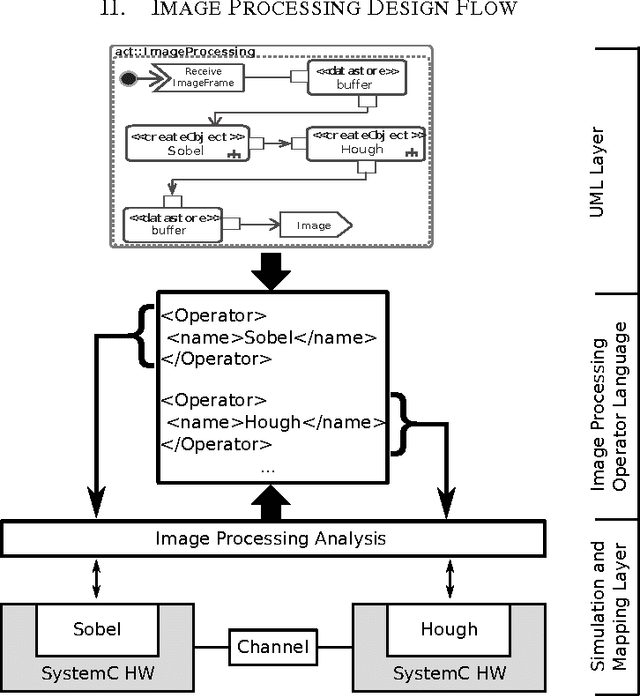Reinhard German
A Holistic Approach for Modeling and Synthesis of Image Processing Applications for Heterogeneous Computing Architectures
Feb 26, 2015
Abstract:Image processing applications are common in every field of our daily life. However, most of them are very complex and contain several tasks with different complexities which result in varying requirements for computing architectures. Nevertheless, a general processing scheme in every image processing application has a similar structure, called image processing pipeline: (1) capturing an image, (2) pre-processing using local operators, (3) processing with global operators and (4) post-processing using complex operations. Therefore, application-specialized hardware solutions based on heterogeneous architectures are used for image processing. Unfortunately the development of applications for heterogeneous hardware architectures is challenging due to the distribution of computational tasks among processors and programmable logic units. Nowadays, image processing systems are started from scratch which is time-consuming, error-prone and inflexible. A new methodology for modeling and implementing is needed in order to reduce the development time of heterogenous image processing systems. This paper introduces a new holistic top down approach for image processing systems. Two challenges have to be investigated. First, designers ought to be able to model their complete image processing pipeline on an abstract layer using UML. Second, we want to close the gap between the abstract system and the system architecture.
 Add to Chrome
Add to Chrome Add to Firefox
Add to Firefox Add to Edge
Add to Edge